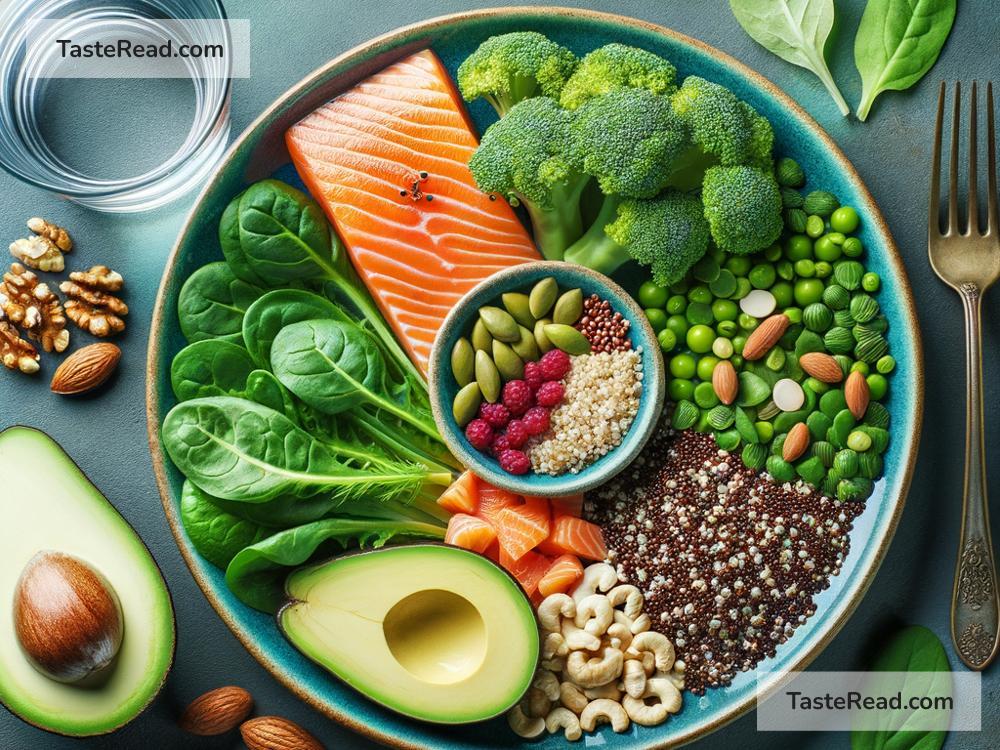Understanding the Role of Dietary Minerals in Health
When it comes to staying healthy, most people think about eating fruits and vegetables, drinking water, or exercising. But there’s another part of a healthy diet that often gets less attention: dietary minerals. While they may not be as trendy as “superfoods,” minerals are just as important for keeping your body working well. In this article, we’ll take a closer look at what dietary minerals are, why they matter, and how to get them from the foods you eat — all explained in simple terms.
What Are Dietary Minerals?
Dietary minerals are tiny substances found in food that your body needs to function properly. Think of them as building blocks for your body. Even though you only need small amounts of minerals, they play a big role in everything from helping your heart beat to keeping your bones strong.
Unlike vitamins, minerals come from the earth. Plants absorb minerals from the soil, and we get them by eating plants or animals that have eaten plants. Minerals are classified into two groups:
- Macrominerals: These are minerals your body needs in larger amounts. Examples include calcium, magnesium, potassium, and sodium.
- Trace minerals: These are needed in smaller amounts but are still essential for good health. Examples include iron, zinc, iodine, selenium, and copper.
How Do Minerals Help Your Body?
Minerals are involved in lots of important jobs in the body. Here are a few key roles they play:
1. Strong Bones and Teeth
Calcium is the star mineral when it comes to your bones and teeth. It helps make them strong and healthy. Without enough calcium, your bones can become weak and brittle, which can lead to problems like osteoporosis as you age.
2. Energy and Muscle Function
Magnesium helps your muscles contract and relax, and it’s also involved in turning the food you eat into energy. Think of it as the mineral that helps keep you moving.
3. Heart Health
Potassium and sodium work together to maintain a healthy balance in your body’s fluids and keep your blood pressure in check. Potassium also helps your heart beat properly.
4. Oxygen Delivery
Iron is vital for your blood. It helps make hemoglobin, a protein in your red blood cells that carries oxygen to every part of your body. Without enough iron, you might feel tired and weak — this is called anemia.
5. Immune System Support
Zinc is a powerful mineral for your immune system. It helps your body fight off illnesses and heal wounds. Selenium also plays a role in protecting your body from cell damage.
6. Thyroid Function
Iodine keeps your thyroid working well. Your thyroid is a small gland in your neck that helps control your metabolism — how fast your body turns food into energy.
What Happens When You Don’t Get Enough Minerals?
If your body doesn’t get enough of certain minerals, it can lead to health problems. For example:
- Calcium deficiency can cause weak bones and lead to conditions like osteoporosis.
- Iron deficiency can result in anemia, which makes you feel tired and weak.
- Magnesium deficiency can cause muscle cramps or irregular heartbeats.
- Iodine deficiency can lead to thyroid problems, which might make you feel sluggish or gain weight.
On the flip side, consuming too much of certain minerals can also be harmful. For example, too much sodium can raise your blood pressure and increase your risk of heart disease.
How Can You Get Enough Minerals?
The best way to get the minerals you need is through a balanced diet. Here’s a list of some mineral-rich foods:
- Calcium: Milk, cheese, yogurt, leafy greens (like spinach or kale), almonds
- Magnesium: Nuts, seeds, beans, whole grains, dark chocolate
- Potassium: Bananas, oranges, potatoes, tomatoes, avocados
- Iron: Red meat, poultry, fish, beans, lentils, spinach
- Zinc: Meat, shellfish, whole grains, dairy products
- Selenium: Brazil nuts, fish, eggs
- Iodine: Seafood, iodized salt, dairy products
Eating a variety of these foods will help ensure your body gets the minerals it needs to stay healthy.
Tips for Better Mineral Intake
- Eat a Rainbow: Different-colored fruits and vegetables provide different nutrients, including minerals. Try to eat a variety of colors each day.
- Avoid Processed Foods: Many processed foods are high in sodium and low in other important minerals. Focus on whole, fresh foods instead.
- Cook Smart: Some minerals can be lost during cooking. For example, boiling vegetables can cause potassium and magnesium to seep into the water. Steaming or roasting your food can help retain more minerals.
- Check Labels: Look for products fortified with minerals, such as cereal with added iron or milk with added calcium.
Final Thoughts
Dietary minerals might not be as exciting as trendy recipes or new workout plans, but they’re undeniably important for your health. From strong bones to a healthy heart, these tiny substances play huge roles in keeping your body running smoothly. The good news is that getting your daily dose of minerals doesn’t have to be complicated. A balanced diet filled with a variety of fruits, vegetables, grains, and proteins will help you provide your body with the nutrients it needs. So the next time you sit down for a meal, remember: the minerals in your food are quietly working hard to keep you healthy!


